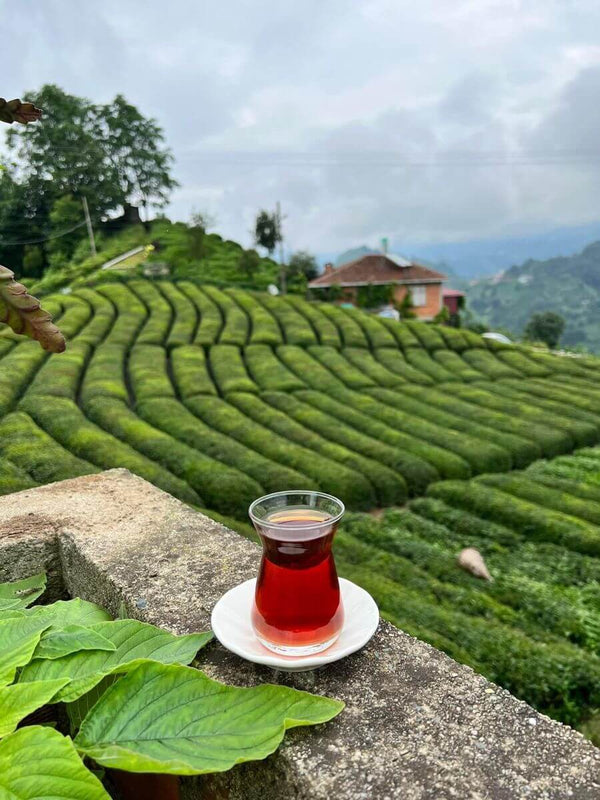Sustainable Tea: Supporting Communities & Nature
Tea has been cherished as looked as something much beyond a beverage by most of us! It is that solace, the comfort factor, the tradition and a beverage with fritters to socialise with. Tea is not only about its stimulating taste but its cultivation plays an important role in communities around and the earth. Tea cultivated with sustainable farming not only preserves the earth, but supports the livelihood of inhabitants around, maintains the diversity of life, and fertile soil.
The Role of Tea in Society
Tea gardens are the hub of village activity across the world as they employ thousands of workers. Sustainable farming practices particularly bring this human-land relationship into focus. Farmers working on such farms are not exposed to harmful chemicals and thus enjoy healthier lives. Often, sustainability initiatives include welfare programs like the workers' health services and children's education. When consumers consume sustainably grown tea, they help facilitate such benefits for the community indirectly.
Why Sustainability Matters in Tea Farming
Traditional farming is heavily reliant on chemical pesticides and fertilizers that degrade the health of the soil and contaminate water bodies. Biodynamic and organic farming, however, focus on rejuvenating the health of the soil, reducing carbon emissions, and promoting biodiversity.
The tea produced is free from artificial products, yields delicious leaves and also ensures that the land can be cultivated for generations to come. This cycle shows the way human health and nature are linked in each harvest.
Conservation of the Environment through Tea Cultivation
Tea estates also become natural habitats for wildlife. By preserving shade trees and mixed cover, estates preserve habitat for insects, birds, and animals. This diversity is needed to keep the ecological balance intact.
Rainwater harvesting, composting, use of renewable energy such as solar power is also being practiced on a larger scale in these tea estates. These methods minimize the environmental impact of tea cultivation, keeping farming in sync with nature.
The Global Demand for Sustainable Tea
As people become conscious, the market for responsibly produced tea has grown across the world. People no longer read only for the words flavor and aroma but ask more: Was the tea produced responsibly? Were workers treated decently? Was the soil enriched rather than depleted?
This step has inspired many brands and tea estates to concentrate on sustainability. Not only do their products boast high quality, but also the ethics that go into every cup.
India's Place in Sustainable Tea
India is renowned for producing some of the finest tea, and Darjeeling, Assam, and Nilgiri are renowned areas. Indian estates are at the forefront with organic certification and fair trade on offer.
All of this makes sure that tea is something India can be proud of while staying in line with global sustainability efforts. The Indian tea industry also plays a pivotal role in the labor employment of women as a high percentage of the working class consists of women empowered by fair working conditions. This once again illustrates how sustainable agriculture not only benefits the land but benefits the very nature of society as well.
The Conscious Consumer's Role
Every buying decision counts. When customers opt for ethically sourced tea or organic tea, they are supporting farmers in their efforts to labor tirelessly to protect the environment and enhance communities. It is not simply a choice of a drink; it is joining a movement.
Every time customers choose sustainable brands such as Tea Culture of the World, they are promoting better farm systems, equitable wages, and protection of the environment. Even small decisions such as reading labels or questioning sourcing are waves of change within the industry.
Tea epitomizes balance of labor and leisure, earth and cultivation, heritage and creativity. Sustainable tea farming embodies this balance by being aware of human beings and the Earth. The next time you sit down to a cup of your favorite brew of tea, remember that the leaves in your pot may have helped in paying a farmer's salary, preserved a forest ecosystem, or maintained the integrity of a river. With conscientious choices, each sip is a toast to life, people, and the planet.
Frequently Asked Questions
Organic tea means farm practices that preserve the soil, avoid poisonous chemicals, maintain fair wages, and maintain biodiversity but still produce good-quality leaves.
Organic tea is grown without synthetic fertilizers or pesticides, hence is healthier for the consumer, safer for workers, and better for the environment.
Darjeeling, Assam, and Nilgiri are famous regions for growth of the best tea India exported, acclaimed for their unique tastes and quality.
Tea estates create jobs, housing, medical care, and schooling, making them the center of community life. Sustainable agriculture ensures these benefits grow without harming the environment.
Look for credible retailers and certified companies that deal in organic farming and ethically produced products. Some conscientious vendors today provide transparency about how their tea is produced and sourced.


